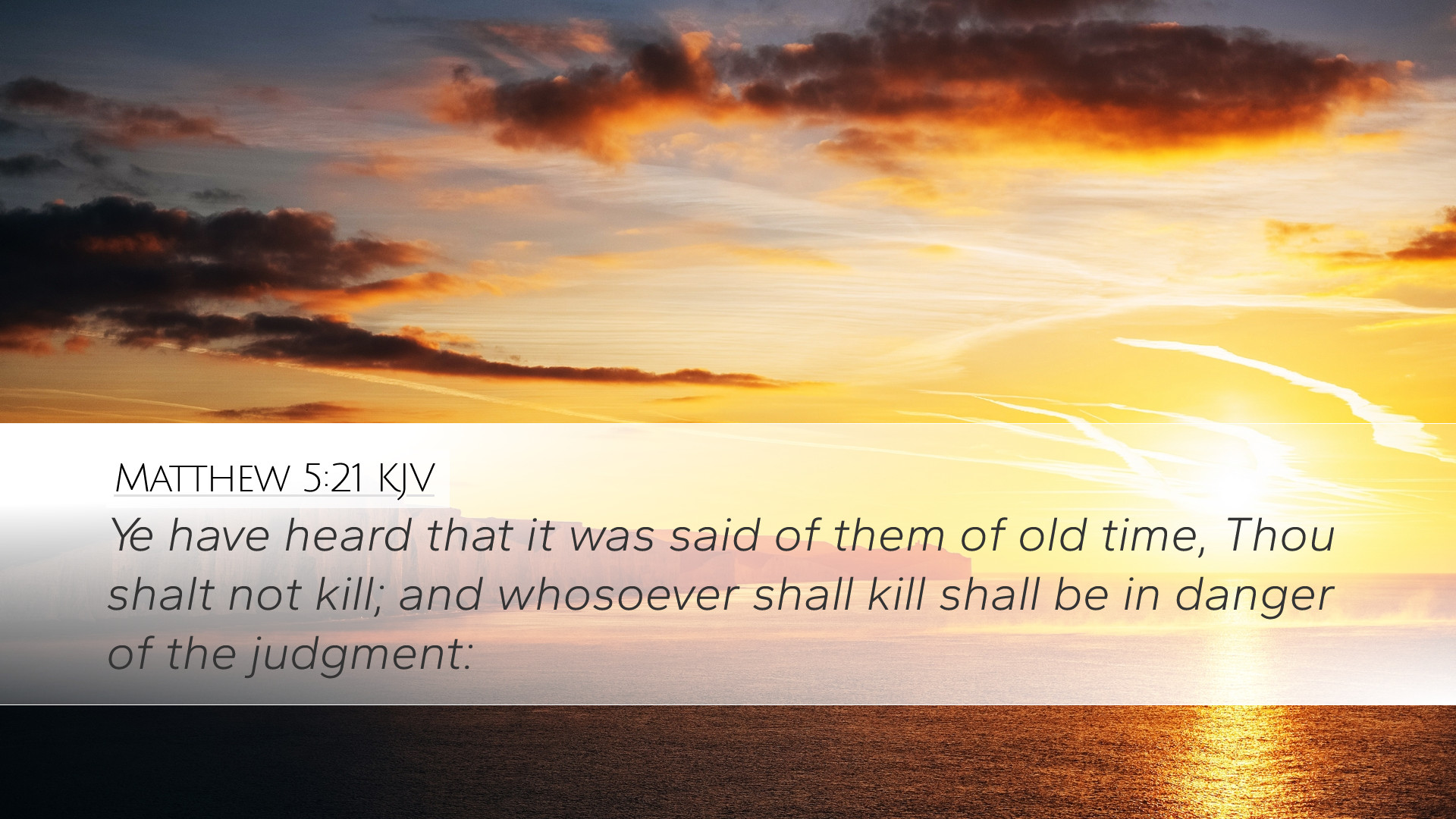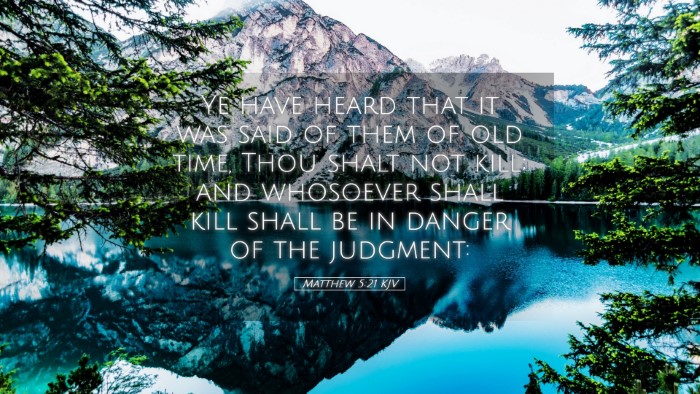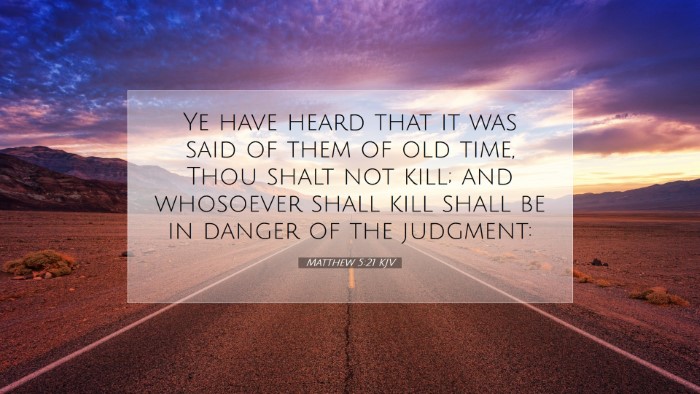Bible Commentary on Matthew 5:21
Verse Overview: Matthew 5:21 states, "You have heard that it was said to those of old, ‘You shall not murder; and whoever murders will be liable to judgment.' This verse serves as the beginning of a series of teachings from Jesus, where He intensifies the understanding of the law.
Historical Context
The teaching of Jesus found in Matthew 5:21 is part of the Sermon on the Mount, which is crucial in understanding the ethical implications of the Kingdom of Heaven. In the Jewish context, the commandment "You shall not murder" reflects a deep respect for life that was foundational to societal laws. The Pharisees and teachers of the law often emphasized the letter of the law while neglecting its spirit and deeper implications.
The Meaning of "You Shall Not Murder"
This commandment, originating from Exodus 20:13, was well-known to the Jewish audience Jesus addressed. Yet, Jesus goes beyond mere physical action, highlighting the internal attitudes that lead to such actions. Matthew Henry notes, "Christ shows that the law reaches further than the outward act; it also covers the inward thoughts and intentions."
Insights from Commentaries:
-
Matthew Henry:
Henry emphasizes that the commandment forbids not just the act of murder but also anger and contempt towards others, which can ultimately lead to murder. He states, "As anger is the root, so murder is the fruit."
-
Albert Barnes:
Barnes observes that the commandment underscores the vital principle that the injury and hatred of others stem from a violation of this command. He writes, "The source of murder is in the heart, and if the heart is not right, the actions will not be right either."
-
Adam Clarke:
Clarke delves into the legal implications, stating that the 'judgment' referred to is not just a judicial process but signifies accountability before God. He notes, "God's eye is upon the heart; every angry thought and contemptuous look is as significant to Him as the act of murder itself."
The Broader Implications
Jesus is teaching that righteousness that pleases God goes beyond rigid adherence to the law. The desire to uphold the law externally must correlate with a transformation of the heart. This aligns with the Old Testament prophetic call to true religion, which emphasizes justice, mercy, and humility (Micah 6:8).
Theological Considerations
This verse urges readers to reflect on their inner life and relationships with others. It brings forth questions about the nature of anger, forgiveness, and reconciliation. Henry's commentary suggests that "the greatest distance from spiritual murder is to avoid unkindness and enmity of heart."
Practical Applications:
- Self-reflection: Believers are challenged to examine their hearts and motives. Are they nurturing anger or resentment towards others?
- Forgiveness and Reconciliation: Jesus’ teaching underlines the necessity of seeking reconciliation with those against whom one harbors anger.
- Spiritual Growth: Understanding that external behavior must stem from a heart molded by Christ is crucial for discipleship.
Conclusion
Matthew 5:21 serves as a powerful reminder that God's standard goes beyond visible actions to the hidden contours of the heart. Those who wish to embrace the teachings of Jesus must allow His words to penetrate deeply into their lives, cultivating love, forgiveness, and grace in their interactions with one another. Commentators such as Henry, Barnes, and Clarke invite us to mature spiritually by addressing our inward sins and fostering an authentic, loving relationship with our fellow man.


